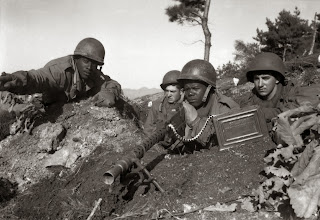When
they asked for those to raise their hands who'd go down to the courthouse the
next day, I raised mine. Had it high up as I could get it. I guess if I'd had
any sense I'd've been a little scared, but what was the point of being scared?
The only thing they could do to me was kill me and it seemed like they'd been
trying to do that a little bit at a time ever since I could remember. – Fannie Lou
Hamer
Listen to Fannie Lou Hamer's testimony about her experiences when she tried to register to vote at the National Democratic Convention here.
Even though Americans actively participated in non-violent protest, they were often confronted with excessive violence, particularly during the 1960s.
Consider the impact of these two ideologies, non-violent strategies toward racial intergration and black nationalism, on African American history and culture.
Have your readings, personal experiences, viewings and class discussion pertaining to the 1960s affirmed, challenged, or changed what you understand about America, African American culture or Black identity? If so how?
Do you recognize how the fear of communism and racist discrimination could have been intertwined? If so, how?




















